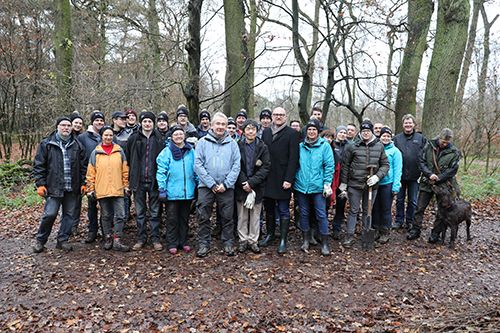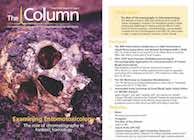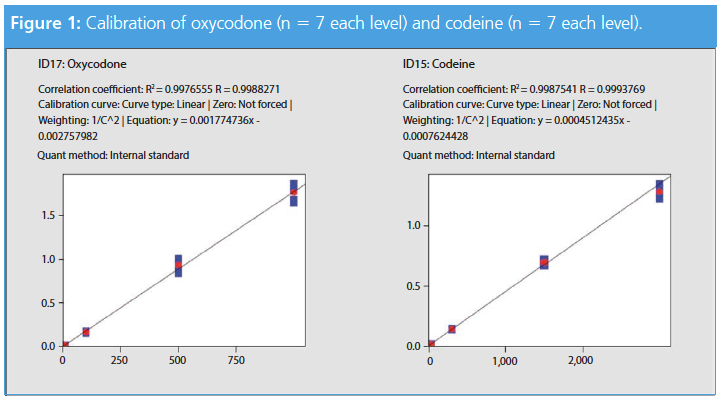Shimadzu Employees Plant Many Trees
Shimadzu employees have volunteered to reforest an area in the Duisburg city forest (Germany) planting 1500 new trees and contributing to the long-lasting woodlands development.
Photo Credit: Shimadzu Europa GmbH

Shimadzu employees have volunteered to reforest an area in the Duisburg city forest (Germany) planting 1500 new trees and contributing to the long-lasting woodlands development.
The selected planting area was heavily thinned out and covered primarily with birch and bracken with a sandy soil. Shimadzu selected 1200 young European oak and 300 sweet chestnut, littleleaf linden, and hornbeam. These species fit the natural tree spectrum of the area and should grow well in the local environmental conditions. They are also particularly long-lived, so that future generations will be able to enjoy them. Furthermore, those particular tree species serve as a habitat for many rare and endangered animals, plants, and fungi species, which is an added conservation bonus.
The woodland where the trees were planted is part of the Duisburg Sechs-Seen-Platte (Six Lakes Region), a recreational area with a network of hiking trails of 18 km. The trees were approximately 1.50 m in size and were planted in a relatively dense formation, to enable the New Trees Mission to monitor which trees grow best in the first 20 to 30 years. The strategy mimics nature, which creates an incredibly large number of seedling offspring through natural seeding from the mother tree. Over the years only a few trees will remain and their number will continue to reduce further as they grow. The trees that prevail will be positioned in the best spot and flourish because their access to sunlight and other elemental advantages will be the strongest.
Social responsibility is one of Shimadzu’s established corporate principles and this event which engages in the local community, wider society, and the environment fulfils this principle.
For more information about Shimadzu, please visit: www.shimadzu.eu

Regulatory Deadlines and Supply Chain Challenges Take Center Stage in Nitrosamine Discussion
April 10th 2025During an LCGC International peer exchange, Aloka Srinivasan, Mayank Bhanti, and Amber Burch discussed the regulatory deadlines and supply chain challenges that come with nitrosamine analysis.















